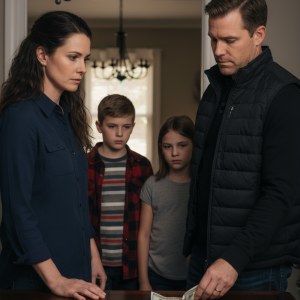When Farewell Sparks Questions of Eternity
Losing someone we love doesn’t just break our hearts—it opens up profound, often unspoken questions. Chief among them: What happens to the soul after cremation? It’s a question as ancient as humanity itself, and the answers are as diverse as the people who ask it.
While science can explain the physical process of cremation down to the last ember, the soul’s journey remains a deeply spiritual mystery—shaped by centuries of religious wisdom, cultural traditions, and personal belief.
1. Hinduism and Buddhism: Fire as a Path to Freedom
In Hindu tradition, cremation isn’t just a farewell—it’s a sacred rite of passage. Hindus believe the soul, or atman, is eternal. Death is merely the soul shedding its earthly shell, and cremation is the fire that releases it. Through the sacred flames, the soul is set free to continue its journey through samsara—the cycle of life, death, and rebirth.
Buddhism offers a similar yet distinct view. Although it doesn’t define the soul as eternal, it teaches that consciousness continues through rebirth. Cremation, then, is both a practical and symbolic acknowledgment of impermanence—a powerful concept in Buddhist philosophy.
2. Christianity: Resurrection and Redemption Beyond the Body
Christian attitudes toward cremation have shifted over time. Once discouraged—especially within Catholicism, where burial reflected belief in bodily resurrection—cremation is now widely accepted across most Christian denominations.
For Christians, the soul’s journey is guided not by what happens to the body, but by faith. After death, the soul faces divine judgment and enters heaven, hell, or, in Catholic belief, a temporary state like purgatory. The physical state of the body—whether buried or cremated—has no bearing on its eternal fate.
3. Islam: Honoring the Body with Earth, Not Fire
In Islam, cremation is unequivocally forbidden. The body is to be buried as soon as possible, facing Mecca, in a humble and dignified manner. The soul, which leaves the body at death, remains in a state of connection to it until the Day of Judgment.
To Muslims, the body is a gift from God—one that must be treated with utmost respect, even in death. Cremation, viewed as a desecration, contradicts the Islamic principle of honoring the human form as a vessel of divine creation.
4. Secular and Spiritual Perspectives: Returning to the Elements
Not everyone finds guidance in religious doctrine. For many, especially those who identify as spiritual but not religious—or who embrace secular or scientific worldviews—cremation is more about symbolism and legacy than the soul.
Some believe the soul merges with the universe, becomes part of the natural cycle, or continues to exist through love, memory, and the mark we leave behind. Others see death as the end of consciousness, with cremation serving as a respectful and environmentally conscious way to return to nature.
Conclusion: The Meaning We Give to the Journey
Cremation is more than a physical process—it’s a powerful, symbolic act. What it means depends not on science, but on the stories we carry in our hearts: of faith, tradition, love, and longing for answers.
Whether we see the soul as journeying toward a new life, ascending to judgment, reuniting with the cosmos, or simply living on in memory, the essence of that belief lies within us.
In mourning, these reflections offer not just understanding—but peace.





